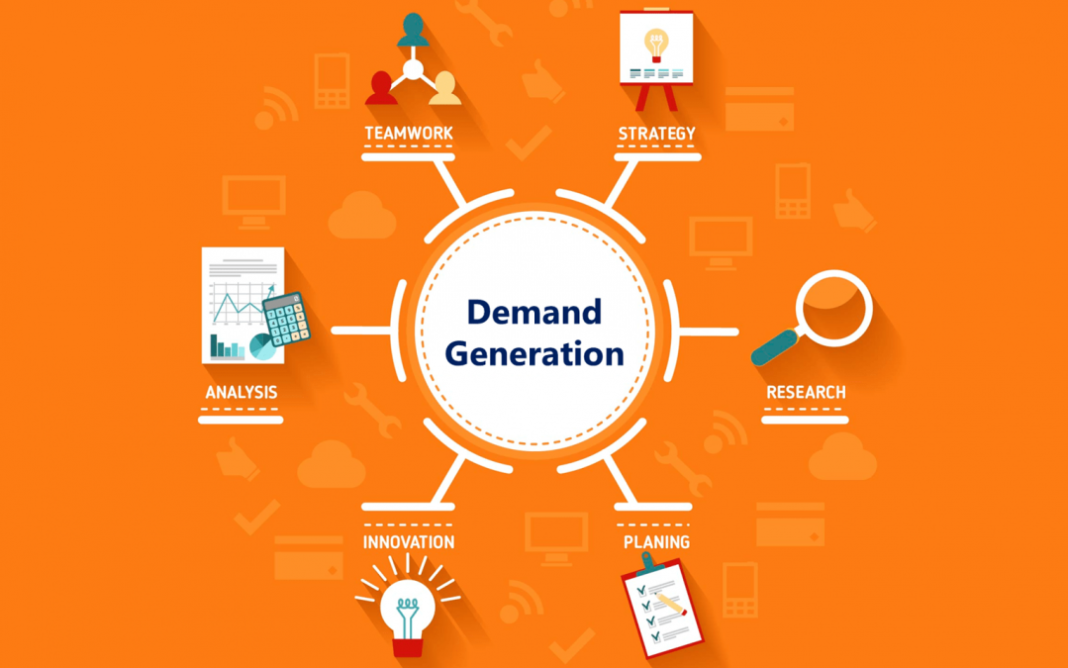The purpose of B2B demand generation is to increase exposure to, and interest in, a product or service among business-to-business customers. Teams in charge of marketing work to create opportunities for sales by way of generating leads.
Given that different parts of a marketing team will have their own goals, it makes sense for those teams to collaborate across multiple channels.
Teams dedicated to field marketing often organize and sponsor B2B trade shows. Also, they plan to work with PR firms to boost brand recognition in their target market. Through activities like content syndication and collaboration with local partners, field marketing teams can generate leads and it is also cost effective as suggested in many account based marketing report.
As a B2B marketer, how do you increase demand?
By targeting their messages to the appropriate personas, B2B marketers can increase demand. Webinars, advertisements, events, public relations, and account-based marketing are all popular methods for spreading this message and attracting potential new customers.
Integrated marketing communications refers to the practice of communicating with a target audience in a unified fashion across multiple channels (IMC).
How does one develop a plan for generating new business?
Building a persona template is the first step in creating a demand generation plan. Targets for the campaign can then be determined. The next thing to do is figure out how to get your message out to your target demographic. The next step is to develop campaigns tailored to each marketing channel while maintaining a consistent tone and message.
The purpose of B2B demand generation is to increase exposure to, and interest in, a product or service among business-to-business customers. Teams in charge of marketing work to create opportunities for sales by way of generating leads. In order to get the best results from marketing efforts, many channels are pursued simultaneously.
When compared to what, exactly, is the value of Demand Generation?
Business expansion can be hastened through effective demand generation. Competition is fierce in today’s market, and it will be difficult to differentiate yourself without a means of generating new demand. For new businesses, quickly turning a profit is essential for survival and the pursuit of new customers and investment.
Companies would have to rely solely on their sales teams and organic methods to bring in customers without demand generation.
Reference cases are extremely important in business-to-business marketing. The more customers you have, the less work it will take to compile case studies as references. In terms of bringing in new business, it’s a powerful tool.
Rapid brand recognition and consumer interest can be generated through demand generation. This will lead to an increase in both customers and testimonials.
As a B2B marketer, how do you increase demand?
By targeting their messages to the appropriate personas, B2B marketers can increase demand. The business value of your products or services is what you should be emphasizing the most. Webinars, advertisements, events, public relations, and account-based marketing are all popular methods for spreading this message and attracting potential new customers.
Integrated marketing communications refers to the practice of communicating with a target audience in a unified fashion across multiple channels (IMC).
Business-to-business (B2B) markets are where you can interact with those who have real sway in making purchases. Different approaches are needed to pique the interest of these personas. For example, B2B incentive marketing can be used to provide rewards or incentives to motivate and encourage businesses to make a purchase or engage in a desired behavior. The goal of B2B incentive marketing is to increase sales, boost customer retention, and drive business growth. It is a common strategy used by companies to maintain and grow their customer base.
First, you need to figure out who you’re talking to, and then you can select the most effective channels to spread your message to them.
One-on-one meetings are an effective tool for generating sales-ready leads in business-to-business marketing.















